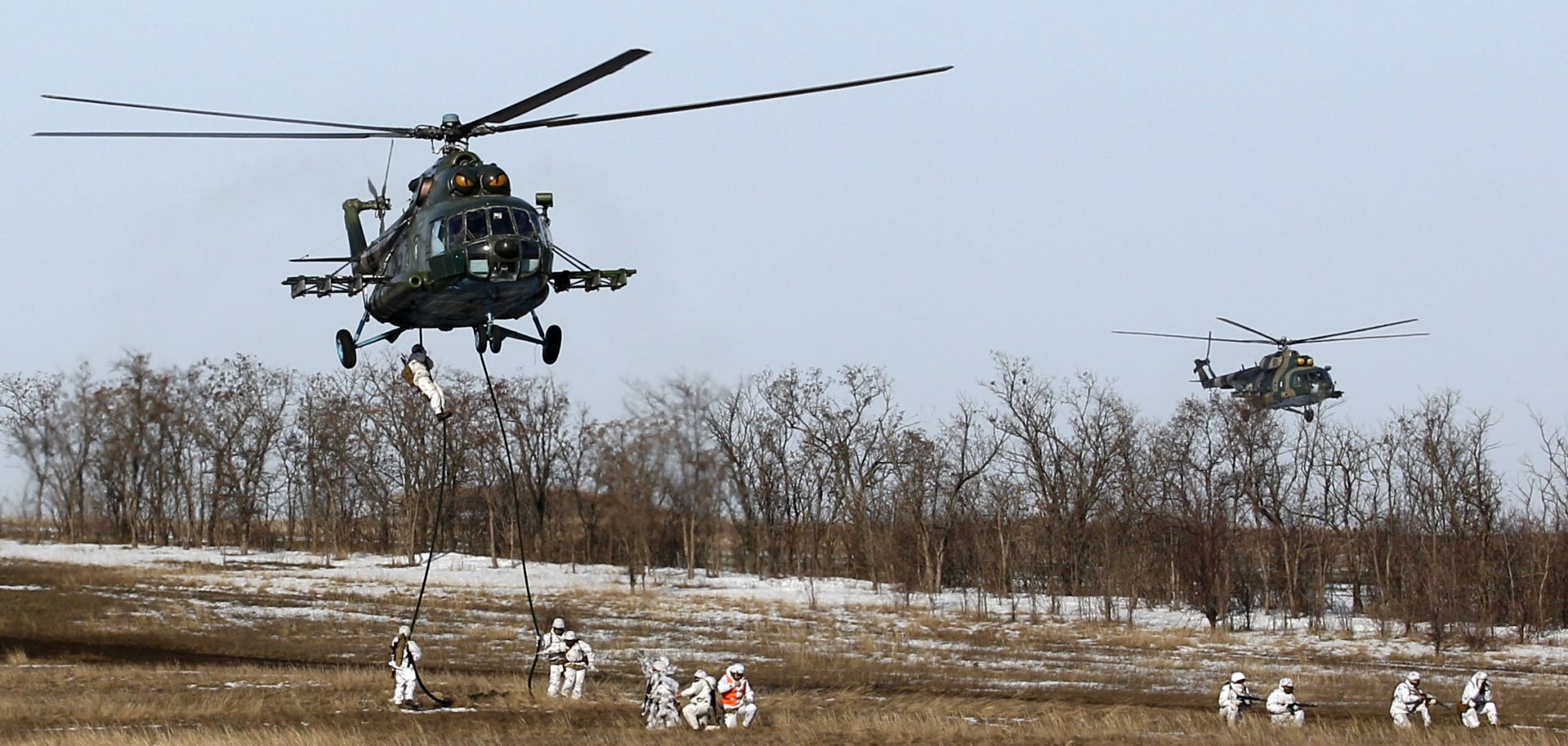ASSESSMENTS
Sanctions Will Widen the Russia-West Rift in 2019
Feb 21, 2019 | 10:00 GMT

Ukrainian servicemen take part in a drill on Azov Sea on Jan. 20, 2019. On Feb. 13, a group of bipartisan U.S. senators from the Senate Foreign Relations Committee introduced a bill to ramp up sanctions against Russia due to its alleged interference in U.S. elections and its "malign" activities in Ukraine and Syria.
(ANATOLII STEPANOV/AFP/Getty Images)
Highlights
- The United States is all but guaranteed to increase sanctions against Russia in the coming months.
- With Congress's hawks demanding a hard line on Moscow and the White House favoring moderation, the extent of U.S. sanctions will fall somewhere between the two extremes.
- The European Union will also increase sanctions against Russia, albeit to a much more limited degree than the United States.
- Russia will succeed in managing the economic fallout from the sanctions with its sanctions insulation strategy, but prolonged measures will continue to undermine the country's longer-term economic outlook.
Subscribe Now
SubscribeAlready have an account?
